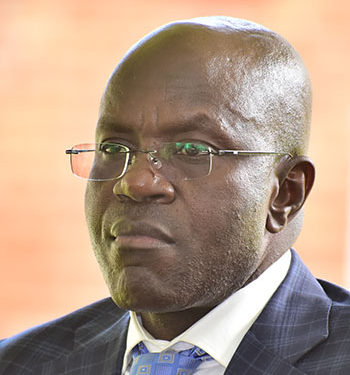In a move that epitomizes the tragic farce of Uganda’s political landscape, President Yoweri Museveni has appointed Alex Kakooza as the new Permanent Secretary for the Ministry of Trade, Industry, and Cooperatives (MTIC). This appointment comes on the heels of Geraldine Ssali’s ignominious ouster—an outcome that not only highlights the insidious corruption festering within our institutions but also the disheartening normalization of criminality at the highest levels of governance.
Geraldine Ssali’s fall from grace has been nothing short of dramatic. On July 18, 2024, Ssali was apprehended by the Anti-Corruption Court on grave charges of causing financial loss and conspiring with Members of Parliament to embezzle cooperative funds. The gravity of her alleged crimes underscores a rampant rot in our administrative structures, a rot that this regime seems perpetually incapable of addressing effectively. Instead of genuinely confronting corruption and instituting reform, Museveni’s latest decision reveals the grotesque charade that defines this administration’s approach: a superficial shuffle rather than a real commitment to systemic change.
Enter Alex Kakooza—a name that should, by all means, strike terror into anyone who values transparency and integrity in governance. Kakooza’s previous tenure as Permanent Secretary in the Ministry of Education ended in July 2021 amidst scandal and inefficiency. His subsequent role as Principal Private Secretary to the Vice-President embedded him deeper into Museveni’s corrupt empire, where ethical standards seem as non-existent as the President’s regard for public accountability. Kakooza’s career trajectory is a glaring symbol of the deeply entrenched culture of impunity that this regime embodies. His promotion to the MTIC role is less an acknowledgment of merit and more a stark illustration of the unchanging status quo in Uganda’s political machinery.
The internal memo announcing Kakooza’s appointment, dated July 25, 2024, and issued by Alfred Oyo Andima, the Under Secretary overseeing finance and administration at MTIC, lays bare an administration steeped in delusional self-congratulation. The memo invites staff to a meeting to welcome Kakooza with a pomp that belies the scandalous nature of his appointment. It is a display of grotesque arrogance and a glaring affront to public sensibilities, highlighting an administration oblivious to the widespread disillusionment and outrage over its repeated failures and egregious acts of corruption.
Kakooza’s appointment raises profound concerns about the future of MTIC and the broader implications for governance in Uganda. The Ministry, now under his purview, will undoubtedly remain a cesspool of corruption, where dubious deals and illicit gains are business as usual. The appointment of someone with Kakooza’s track record does not inspire confidence; rather, it reeks of an explicit endorsement of unethical practices. Kakooza, after all, is a product of the same corrupt system that put Ssali in power. His promotion serves as a stark reminder that in Museveni’s Uganda, moral integrity is a currency too rare to be of any value.
Kakooza’s rise is not merely a matter of personal ambition but a reflection of the pervasive malaise afflicting our governance structures. His previous roles have failed to distinguish him as a reformist or a champion of accountability. On the contrary, they underscore his alignment with a regime that rewards loyalty over competence and corruption over honesty. Kakooza’s appointment is emblematic of a presidency that prefers to maintain a facade of governance while systematically undermining the principles of justice and fairness.
Geraldine Ssali’s incarceration at Luzira Prison should have been a moment for profound reckoning within the corridors of power. Her arrest and subsequent trial represent a rare instance where the system has had to confront the consequences of its own corruption. Yet, the transition from Ssali to Kakooza only reinforces the grim narrative of corruption as an entrenched feature of Ugandan politics. Instead of using this opportunity to enact genuine reforms, Museveni’s administration has opted for the same tired strategies that have repeatedly failed.
The spectacle of Kakooza’s appointment should be a wake-up call for all who care about the future of Uganda. It underscores a regime more interested in perpetuating its own power than in addressing the deep-seated issues of corruption and mismanagement. Kakooza’s new role at MTIC is not just a bureaucratic shuffle; it is a stark reminder of the systemic rot that plagues our governance structures. It is an affront to the principles of good governance and a testament to the entrenched culture of impunity that characterizes Museveni’s Uganda.







Discussion about this post